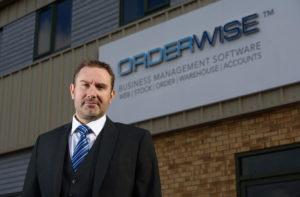Alison Taylor: Collective CSR


Looking back 20 years, CSR was, to a small minority of corporations, a genuine attempt to have a positive impact on the environment and communities in which they operated. For the vast majority, though, it was simply a box ticking exercise, intended to off-set any negative impact the business operations were having, that could also generate a couple of pages of worthy content for the annual report.
Over time, from the tiny sparks of genuine intent have grown the flames of innovation, known as CSI (Corporate Social Innovation), that has changed corporate thinking and left the juggernaut of old-school industry gasping. Unilever is arguably the best-known example of a company applying CSI to its operations – Paul Polman, Unilever’s CEO, committed to doubling the size of the business in 10 years while reducing its absolute environmental impact, a brave and ambitious goal which set a tone for others to follow.
However, a concern with large corporations applying the CSR retrofit in this way is that there will, surely, be areas of their operations or supply chains that continue to have a negative, or less than positive, impact. After all, reducing the sugar or fat content of processed foods may make them healthier but it will not necessarily make them healthy. But, by overshadowing these issues with positive messaging around new innovations in CSR, a company can build (or ‘greenwash’) positive consumer perceptions.
On the other hand, brands like Burt’s Bees, which were established on a platform of social and environmental good, are able to develop their businesses with governance measures in place that ensure they continue to deliver against their ‘greater good’ ethos, while growing commercially.
And then, most recently, we have seen real innovation in the circular economy and initiatives demonstrating how we can recycle and reuse products, like the wonderful Flipflopi sailing boat made entirely from recycled ocean plastic (and flip flops) from tour operator Ben Morison.
Today, there is a massive body of evidence to support the thinking that CSR is not only good for its recipients (individuals and communities in need, nature, the environment), but also for an organisation’s bottom line – driving cost savings and efficiencies, and building brand differentiation.
Whether your organisation is a CSR ‘retrofit’ or a ‘new build’, the areas in which you can choose to have a meaningful impact are endless and now even easier to identify than ever. In 2015, 193 countries signed up to the UN Sustainable Development Goals and these provide all organisations with a ready-made framework within which to make a difference.
All of the Goals are, of course, interlinked so that, for example, making a positive impact towards No Poverty will also make an impact on Zero Hunger and Decent Work and Economic Growth, and so forth.
As a team we focus a lot of our attention on quality education (Goal 4) and reducing inequalities (Goal 10) with initiatives like our own FXP, as well as FIRST® Lego® League, FIRST® Tech Challenge, and the Energy Challenge (for AstraZeneca). We are also extremely proud of our work with Planetari to have a positive impact on Life Below Water (Goal 14) which, in future series, will focus on all of the 17 Goals in turn.
I can say that, for us, this is easy – when we founded the company we set out to ‘do good while doing well’, so this thinking permeates all that we do, from recruitment, through training, client servicing, suppliers, and measurement. But I actually think that for organisations of all sizes and types, there really is no excuse any more for inaction or box ticking, when the boxes can be intrinsically linked to a global Goal, the hard thinking work has been done for us. It is our Collective Corporate Social Responsibility (CCSR) to make positive change happen.
 By Alison Taylor
By Alison Taylor
About the author
Alison Taylor has more than 25 years’ experience of creating award winning PR and marketing campaigns for international corporations and blue chip brands, as well as entrepreneurial SMEs and start-ups. She founded Conscious Communications in 2012 to provide creative public relations and marketing, with a conscience.






